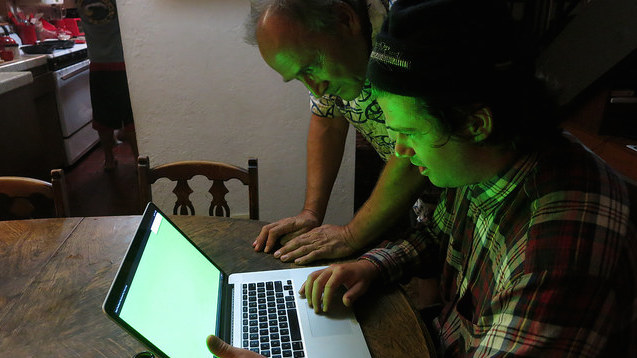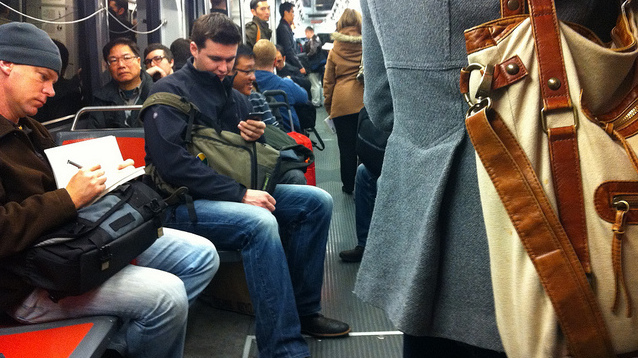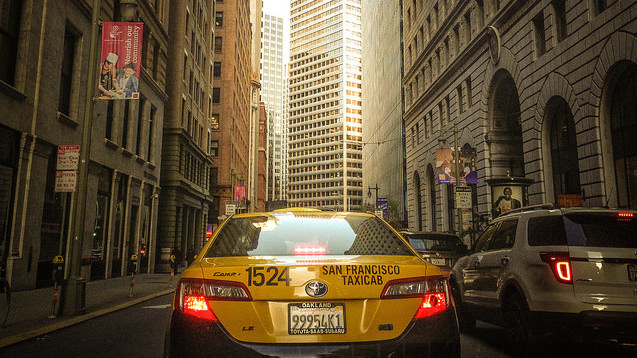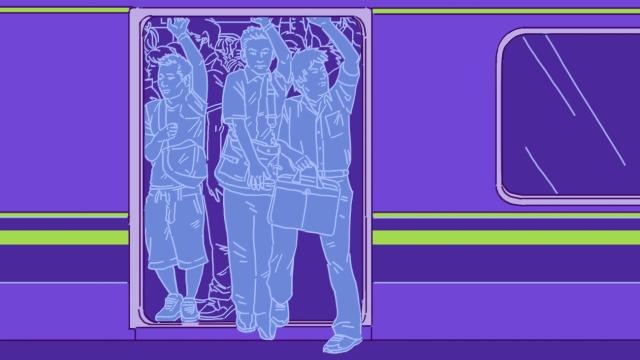When you travel, you often have many options for getting around. Public transport is the best way to save money and expose yourself to the local lifestyle, but it can be tricky to navigate foreign transport systems. Here is what you can do before and during your trip to make it a little easier.
Illustration by Tina Mailhot-Roberge. Images from awfulshot, dlytle, mattpopovich
Research How The System Works

Do some investigation before your visit so that you understand how the public transport system works at your destination. Some things are critical to know, while others are good to find out if you have the time.
Critical:
- Figure out your options. Not every place will have a bus or train system, so know what you will be able to use.
- Know how to pay your fare and when to pay it. This may vary by mode of transportation — the bus might be different than the train, you might have to buy a smartcard first. Find out.
- Understand the consequences of getting caught without a ticket. You should also find out if there are scams associated with this so that you don’t end up paying a fine to a scam artist in a uniform.
- Prepare yourself by having a map and schedule of the systems you plan to use.
Good to know:
- Research proper etiquette. For example, in Japan it is considered rude to talk on your phone or to strangers on the subway.
- Learn phrases for “excuse me” and “thank you” to use when you’re trying to get through a crowd to exit at your stop.
- Know which modes of public transport are a tourist trap — like the cable cars in San Francisco (you can actually take another line to the same place without the crowds and extra fees). If you’re doing it for fun, that’s fine, but some modes are more efficient than others.
- Find out if there are ways you can save money, like the Japan Rail Pass, which can only be bought from outside the country.
You should be able to find much of this information on government web sites for your country or city of choice.
Protect Yourself And Your Stuff

With the crowds on public transport also comes the risk of pickpockets and other criminals. Here are some things to keep in mind so that you protect yourself and your belongings:
- Always keep your bag in front of you and in your arms as much as possible to avoid people cutting into it or cutting the strap and stealing it.
- Don’t put valuable things in your pockets where they can easily be taken.
- When you board, pay attention to where you’re positioned. Will it be tough for you to get off at your stop in time? Is someone suspicious/creepy behind/near you? Can you exit quickly if something happens?
- If you’re in a group, will everyone know when to get off and be able to make it off in time?
- Are there any sketchy areas you might not want to travel through?
Simply do your best to be aware of your surroundings and what is common where you’re travelling.
Have A Backup Plan

Before you leave your accommodations, find out what your alternatives are if you end up stuck somewhere. I once walked back to where I was staying because I didn’t know the bus line I took to the restaurant stopped running at a certain time. It wasn’t fun, but at least I was within a reasonable walking distance to my apartment — you may not be.
If you’re staying somewhere with helpful staff or hosts, ask them about the safest and most reliable options. They probably know everything that is available.
By taking public transport when you’re abroad you save money, see your destination in a new way, and immerse yourself in the life of locals. Follow the steps above to make sure you stay safe and utilise public transportation with ease.

Comments